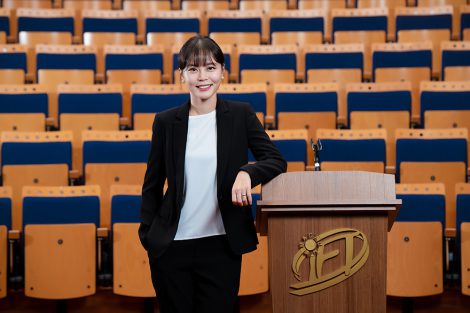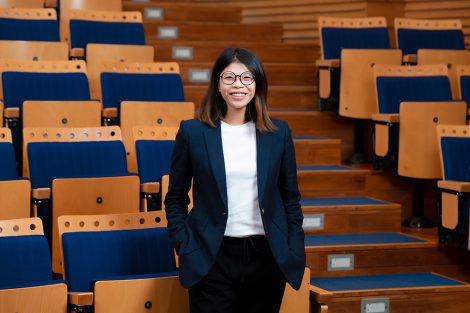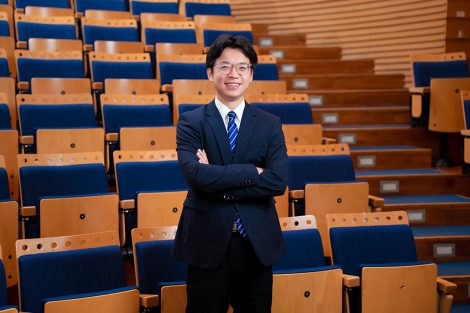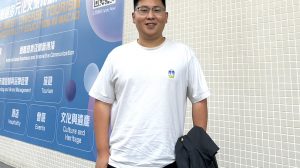IFTM has newly launched Postgraduate Diploma and Master of Science in Smart Technologies in Hospitality and Tourism degree programmes in the academic year 2022/2023 which successfully attract a diverse student cohort in the first year.
As tourists become more digital technology savvy, there is a need for growth of smart tourism. In years to come, IFTM expects continued growth, increased uptake of technology by both travellers and businesses, together with the emergence of upcoming trends like solo travel and sustainable travel. Hence, the new postgraduate programmes aim to provide higher education with an emphasis on knowledge delivery about state-of-the-art technologies applicable in the hospitality and tourism industry. It is hoped that the programme equips graduates with a computational mind and technological skills to work in a technology-enabled and data-driven industry environment.
Cho Yukyung (Amy), one of the interviewees, obtained her bachelor’s degree majoring French Literature and Business Administration from South Korea. With her past working experiences in the service field, she sees the global trend and increasing demand for smart tourism. Hence, she was delighted to pursue the Postgraduate Diploma in Smart Technologies in Hospitality and Tourism degree offered by IFTM. ‘IFTM earns best-yet rating from QS World University Rankings, cements its reputation among world’s best for hospitality and leisure studies. The new introduction of postgraduate programmes opens up doors for people around the world and gives them the opportunity to follow their dreams closer to come.
Another interviewee, Guo Juncheng (Frank), who held a Bachelor Degree of Tourism Management from Zhejiang University City College, found the Master of Science in Smart Technologies in Hospitality and Tourism postgraduate programme attractive to him. He thinks it is a valuable opportunity to have programmes that specify and emphasise the technological level of hospitality and tourism. Its capability towards the efficient and sustainable development of the industry through the use of new technologies can help to extend his research paper about big data analytics in the tourism and travel industry.
‘IFTM is a connected higher educational institution, having excellent facilities, specialist work spaces, and cooperations with many institutions in mainland China. Not only will we enhance our skills and knowledge with a postgraduate qualification, we can also stand out from the crowd and improve our employability opportunities by viewing from a technological perspective,’ he added.
‘COVID-19 was speeding up adoption of smart technology in hospitality. The pandemic has forced companies, including travel, tourism and hospitality businesses, to use robotics and other automated technologies. The introduction of cutting-edge technology such as contactless interactions reduces the risk of COVID-19 infection.’ Tou Ion Man (Elva), another enrolled student for Master of Science in Smart Technologies in Hospitality and Tourism postgraduate programme, indicated.
She believed that the use of smart tourism technologies such as travel-related websites, social media, and smartphones in travel planning has been pervasive and growing. Also, hotels and resorts all over the world are gradually using smart technology and practices to boost resource management and sustainability while growing overall competitiveness to meet the market trend and demand. Thus, technology-based education is interdisciplinary and responsive to new developments in the field. It is a welcome addition to the further expansion and in-depth development of the whole tourism industry.
IFTM President Dr. Fanny Vong Chuk Kwan would like to take the opportunity to express her gratitude towards positive discussion and good application numbers. She is glad to offer the new programmes for this academic year which are expected to help train a new generation of management talent that can understand the importance of applying technology in tourism.











